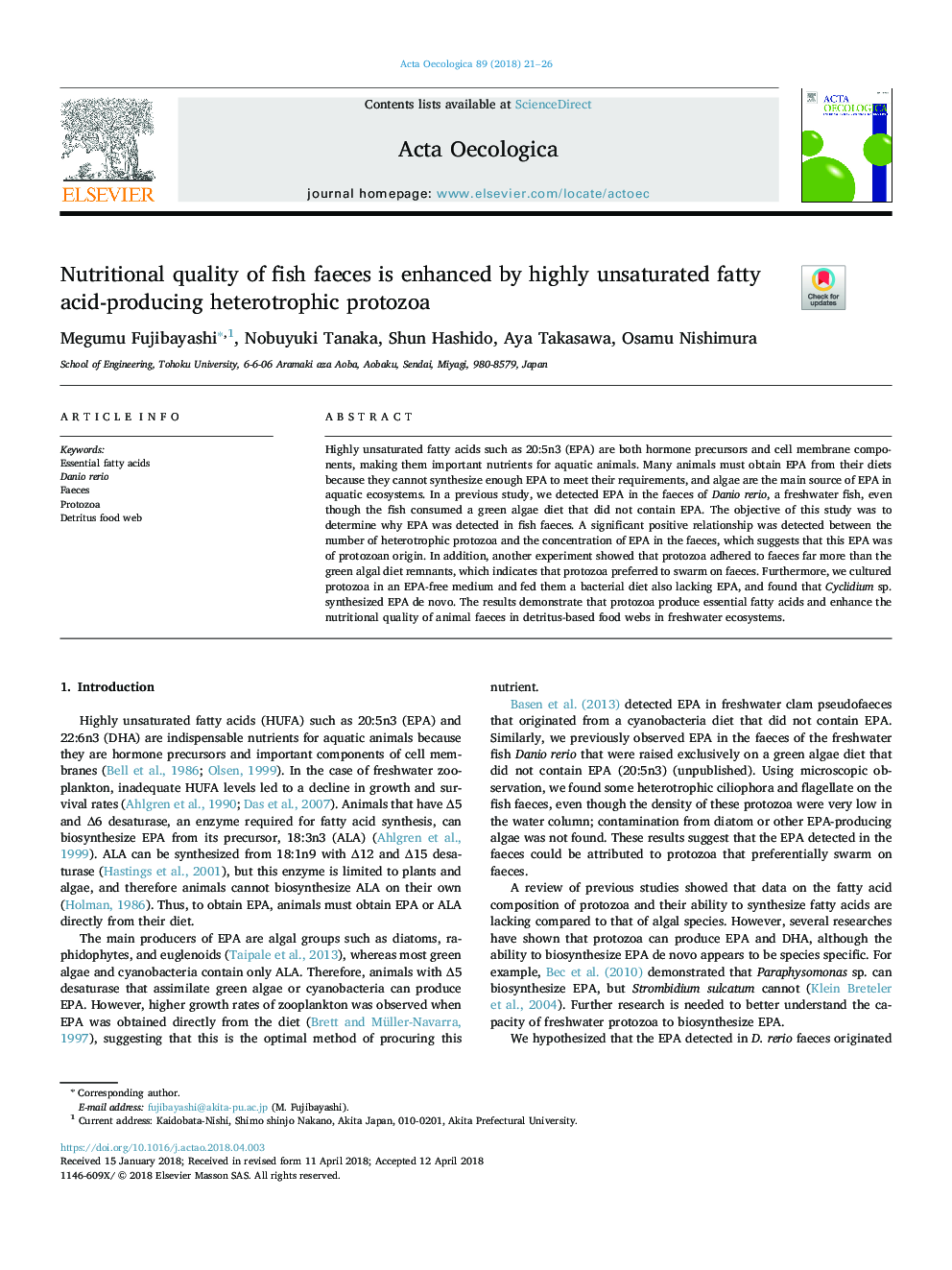| کد مقاله | کد نشریه | سال انتشار | مقاله انگلیسی | نسخه تمام متن |
|---|---|---|---|---|
| 8846504 | 1617683 | 2018 | 6 صفحه PDF | دانلود رایگان |
عنوان انگلیسی مقاله ISI
Nutritional quality of fish faeces is enhanced by highly unsaturated fatty acid-producing heterotrophic protozoa
ترجمه فارسی عنوان
کیفیت غذای غلات ماهی با استفاده از پروتوزوئید هتروتروفیک تولید کننده اسید چرب اشباع نشده
دانلود مقاله + سفارش ترجمه
دانلود مقاله ISI انگلیسی
رایگان برای ایرانیان
کلمات کلیدی
موضوعات مرتبط
علوم زیستی و بیوفناوری
علوم کشاورزی و بیولوژیک
بوم شناسی، تکامل، رفتار و سامانه شناسی
چکیده انگلیسی
Highly unsaturated fatty acids such as 20:5n3 (EPA) are both hormone precursors and cell membrane components, making them important nutrients for aquatic animals. Many animals must obtain EPA from their diets because they cannot synthesize enough EPA to meet their requirements, and algae are the main source of EPA in aquatic ecosystems. In a previous study, we detected EPA in the faeces of Danio rerio, a freshwater fish, even though the fish consumed a green algae diet that did not contain EPA. The objective of this study was to determine why EPA was detected in fish faeces. A significant positive relationship was detected between the number of heterotrophic protozoa and the concentration of EPA in the faeces, which suggests that this EPA was of protozoan origin. In addition, another experiment showed that protozoa adhered to faeces far more than the green algal diet remnants, which indicates that protozoa preferred to swarm on faeces. Furthermore, we cultured protozoa in an EPA-free medium and fed them a bacterial diet also lacking EPA, and found that Cyclidium sp. synthesized EPA de novo. The results demonstrate that protozoa produce essential fatty acids and enhance the nutritional quality of animal faeces in detritus-based food webs in freshwater ecosystems.
ناشر
Database: Elsevier - ScienceDirect (ساینس دایرکت)
Journal: Acta Oecologica - Volume 89, May 2018, Pages 21-26
Journal: Acta Oecologica - Volume 89, May 2018, Pages 21-26
نویسندگان
Megumu Fujibayashi, Nobuyuki Tanaka, Shun Hashido, Aya Takasawa, Osamu Nishimura,
